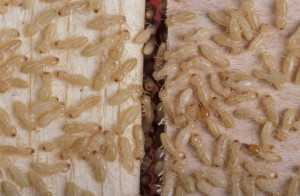 Pests are the uninvited guests that cause damage to any property, along with a variety of health problems. Termites, for example, are known for chewing wood. You’ll know you have them in your home once you see the damage they inflicted to your walls, ceilings, or wooden floor. It’s important to know what to do to prevent them from infesting and damaging the structure. In case you already have them in your home, be sure to take the right course of action to eliminate them.
Pests are the uninvited guests that cause damage to any property, along with a variety of health problems. Termites, for example, are known for chewing wood. You’ll know you have them in your home once you see the damage they inflicted to your walls, ceilings, or wooden floor. It’s important to know what to do to prevent them from infesting and damaging the structure. In case you already have them in your home, be sure to take the right course of action to eliminate them.
Know the Risks
You are more likely to deal with termite problems if you’re living in a house made primarily of wood. Termites thrive in moist areas, such as under the floor. They make the soil their home and look for ways to gain access to your property. Once they establish colonies, they can chew and digest parts of your structure in no time. Contact termite control specialists once you see signs of infestation.
Be Vigilant
It pays to keep an eye on your structure to prevent or control pest infestation. A regular inspection conducted by a reliable pest control company in VA might help you identify signs of termite problems, which include:
– Presence of winged insects or “swarmers”
– Wood that looks and sounds hollow
– Mud tubes on wall surfaces and foundation
– Wood colored droppings
Call for Help
Termite infestation is a serious problem that requires an ultimate solution. Hiring professional termite exterminators would be the best course of action you can take. They have the knowledge, experience, and tools to eliminate and control unwanted guests in your property.
Pests like termites pose a serious threat to your home’s integrity and your pocket. It’s easy to ignore signs of damages, but dealing with the consequences is the hardest part. Imagine how much you may spend replacing infested walls, ceilings, and furnishings. It’s best to let a professional deal with the issue. This way, you can prevent further damage to your structure and do away with costly repairs or replacement.


Be the first to comment on "Dealing with Uninvited Guests: Pest Control Tips for Homeowners"